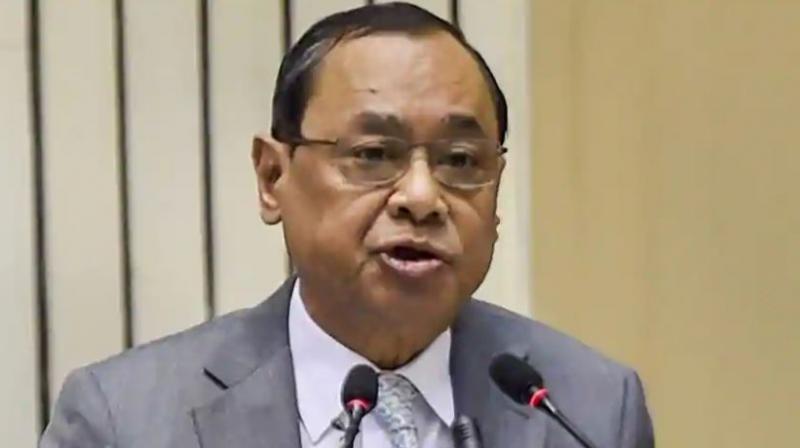Probe findings in CJI case can’t be secret
The so-called findings of the court’s in-house committee in favour of the CJI is also likely to be kept confidential.

For India, another crucial wicket has fallen. In the sexual harassment case brought against Chief Justice of India Ranjan Gogoi by a former junior employee of the court, the CJI was given a clean chit in a sealed cover by the in-house committee of judges headed by Justice S.A. Bobde.
Considering the shaky procedures adopted by the Supreme Court in handling the issue, this outcome can cause nothing but institutional dismay, compounding the sense of unease evident from the open decline in the functioning of the Election Commission in the conduct of the ongoing Lok Sabha election, which has become a matter of open ridicule among the public, and the way in which the nation's central bank, Reserve Bank of India, is sought to be steamrolled under this government.
Irrespective of the merits of the case, which haven’t been investigated by the country's highest court with any sense of impartiality, the woman involved in the CJI case has every right to feel aggrieved and to come out and say in public — as she has done — that her worst fears have come true.
In effect, what this means is that when an allegation is brought by a citizen against those at the judiciary’s highest level, the citizen may not expect to be treated with fairness. Instances like this can potentially shake the people's faith in the democratic order.
The so-called findings of the court’s in-house committee in favour of the CJI is also likely to be kept confidential. Since the woman in question had walked out of the proceedings in frustration as she felt the rules of this probe mechanism were being made to prevent the facts coming out, the decision endorsing Mr Gogoi’s stand is ex parte. That makes it a one-sided affair.
After the woman dissociated herself with what to her looked like a sham process, it was hoped the committee charged with getting at the facts would make corrections to its approach so that the presumed victim may regain confidence in the fact-finding process. Alas, this was not to be.
A Supreme Court judge, Justice D.Y. Chandrachud, has gone so far as to urge fellow judges who were members of the in-house committee to adopt a different process altogether so that the procedures may appear fair to all concerned. Justice Chandrachud’s efforts have been unsuccessful so far.
Fingers are obliquely being pointed at Justice Bobde, who is next in line to be Chief Justice. Since the incumbent CJI recommends his successor, it is thought that the aspirant is likely to have framed such rules for the fact-finding committee that would benefit the CJI. Insistence on the use of the Right to Information Act suggests itself to ensure the findings of the in-house committee are not kept secret.

